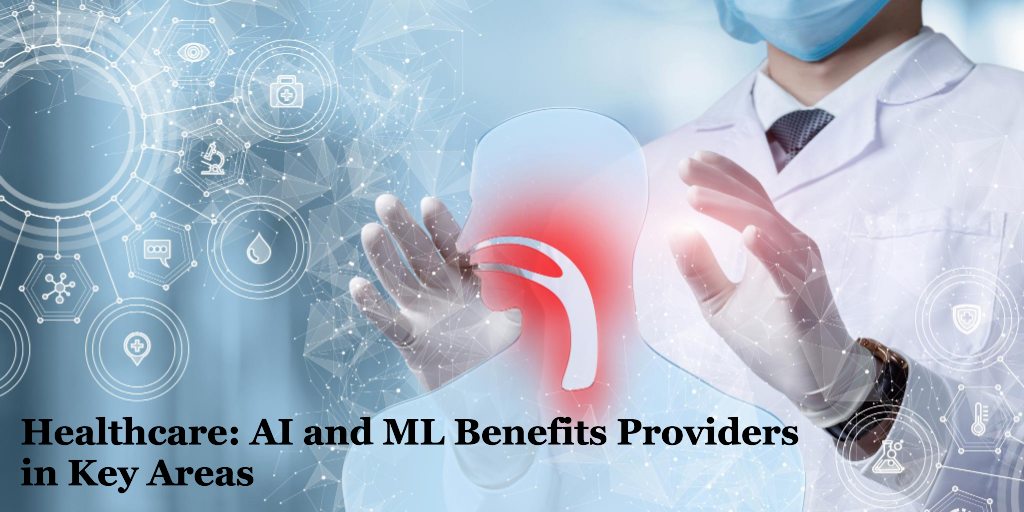Transforming Healthcare: How AI and ML Benefit Providers in Key Areas
In the ever-evolving landscape of healthcare, Artificial Intelligence (AI) and Machine Learning (ML) have emerged as powerful tools for providers. These technologies are transforming various aspects of healthcare delivery, leading to improved diagnostics, patient care, and operational efficiency. In this article, we’ll delve into the significant areas where AI and ML are benefiting healthcare providers.
1. Diagnostic Assistance:
AI and ML algorithms analyze patient data, including medical images and test results, to assist healthcare providers in making more accurate and timely diagnoses. These technologies can identify patterns and anomalies that may be challenging for human experts to detect.
2. Personalized Treatment Plans:
By analyzing patient data, including Electronic Health Records (EHRs) and genetic information, AI and ML can help providers tailor treatment plans to individual patients. This leads to more effective and patient-centric care.
3. Predictive Analytics:
AI and ML can predict patient outcomes, helping providers proactively manage chronic conditions and prevent complications. These technologies analyze historical patient data to identify risk factors and make predictions about disease progression.
4. Drug Discovery and Development:
AI and ML accelerate the drug discovery process by analyzing vast datasets to identify potential drug candidates, predict their effectiveness, and screen for potential side effects. This can lead to faster development of new treatments.
5. Healthcare Operations Optimization:
AI and ML are used to optimize various healthcare operations, including resource allocation, scheduling, and supply chain management. These technologies enhance operational efficiency and cost-effectiveness.
6. Telehealth and Remote Monitoring:
AI and ML enable telehealth services and remote patient monitoring. Providers can remotely track patient vital signs, offer virtual consultations, and receive real-time alerts for early intervention.
7. Predictive Maintenance:
In healthcare facilities, AI and ML can be used to predict when medical equipment needs maintenance or replacement. This proactive approach minimizes downtime and ensures the availability of critical equipment.
8. Fraud Detection:
AI and ML are employed to detect fraudulent activities in healthcare billing and insurance claims. These technologies analyze claims data to identify suspicious patterns and prevent fraud.
9. Data Security:
AI-driven cybersecurity tools help protect patient data by detecting and responding to potential security breaches and threats. These technologies strengthen data security in healthcare.
10. Patient Engagement:
AI-powered chatbots and virtual assistants engage patients, answer their queries, and provide information about appointments, medications, and treatment plans, enhancing the overall patient experience.
Conclusion:
AI and ML technologies are revolutionizing healthcare for providers by enhancing diagnostics, personalizing treatment plans, improving patient care, and optimizing healthcare operations. Embracing these technologies empowers healthcare providers to deliver higher quality care, reduce costs, and stay at the forefront of healthcare innovation. As the healthcare landscape continues to evolve, AI and ML will play an increasingly pivotal role in transforming the way healthcare is delivered and experienced.




